Building Young Syrians’ Political Empowerment in Northern Syria
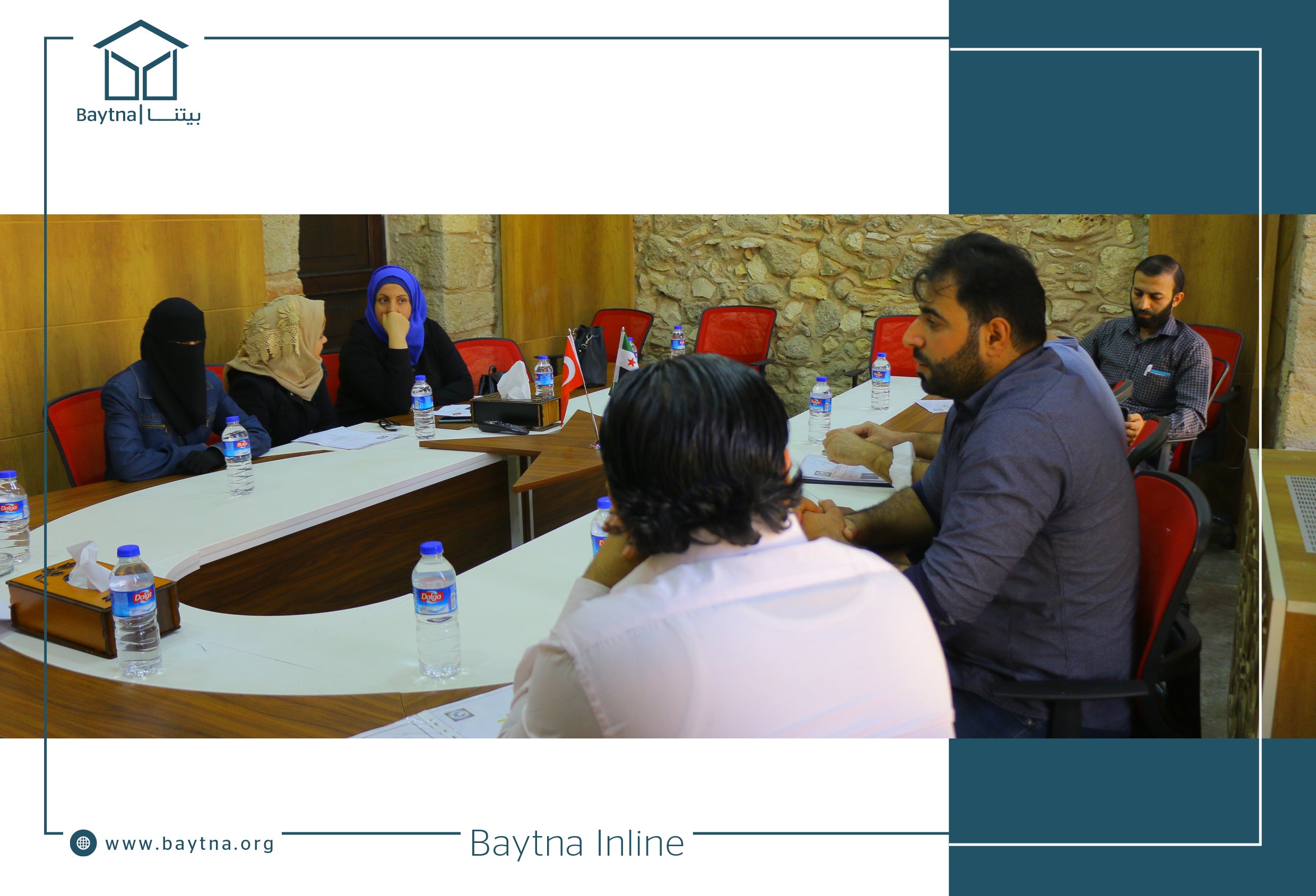
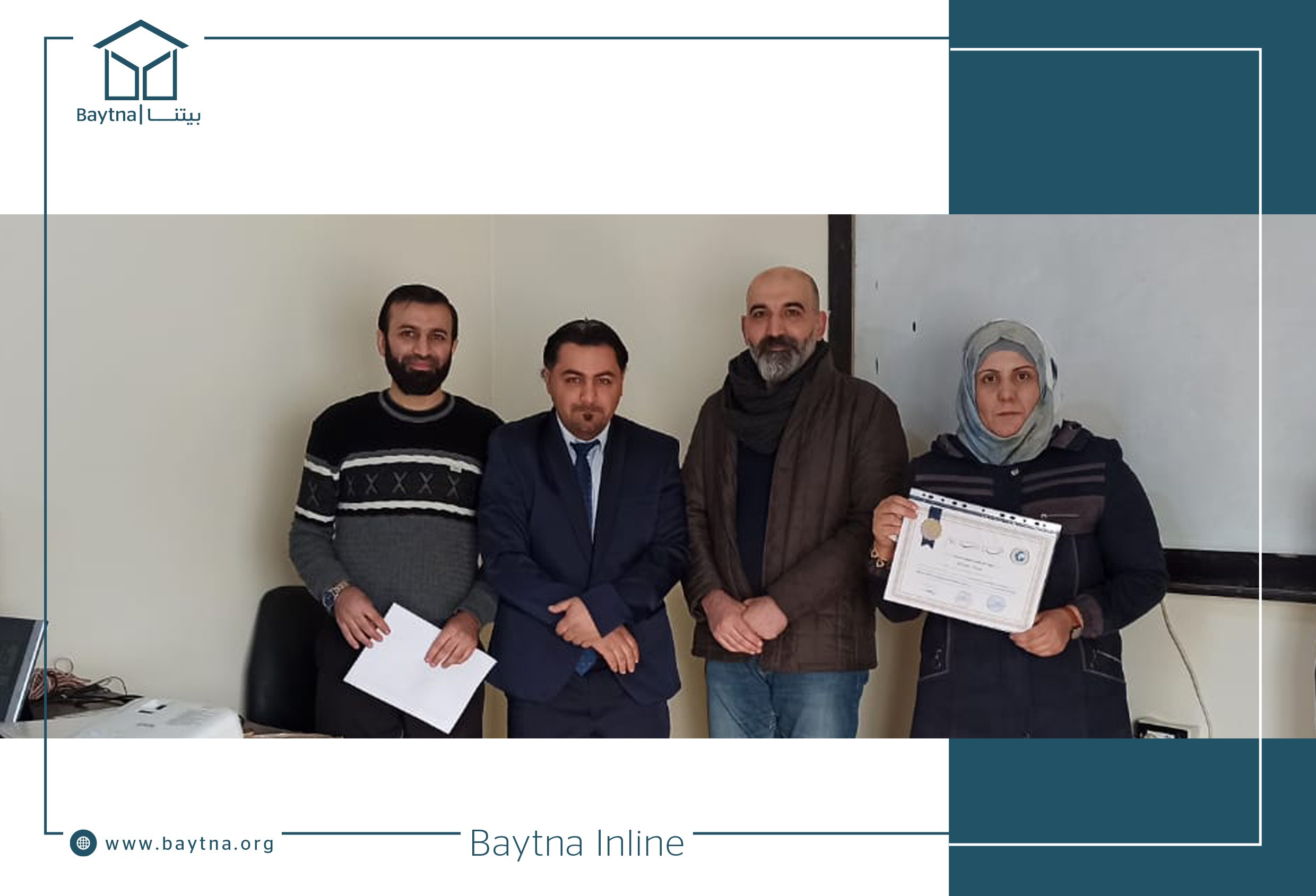
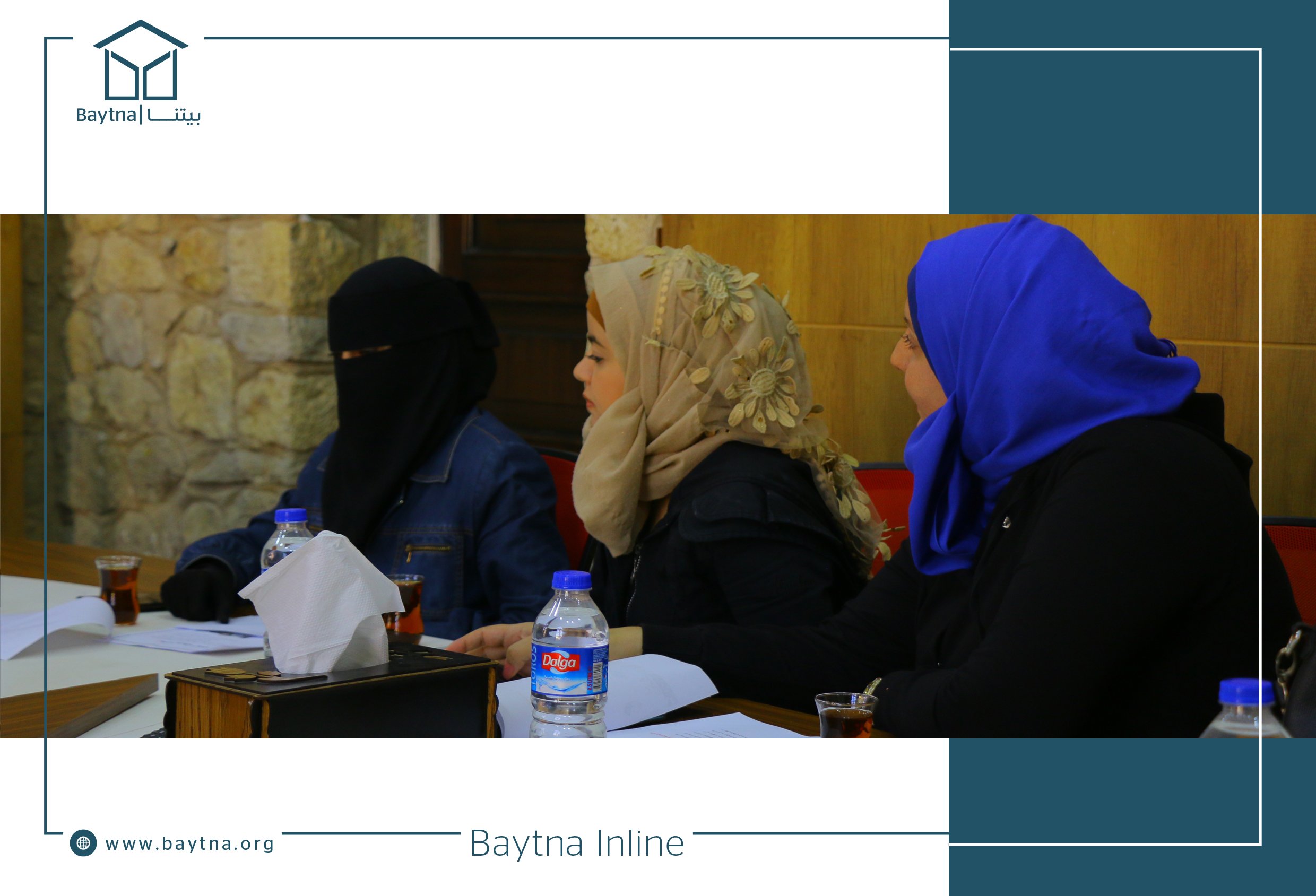
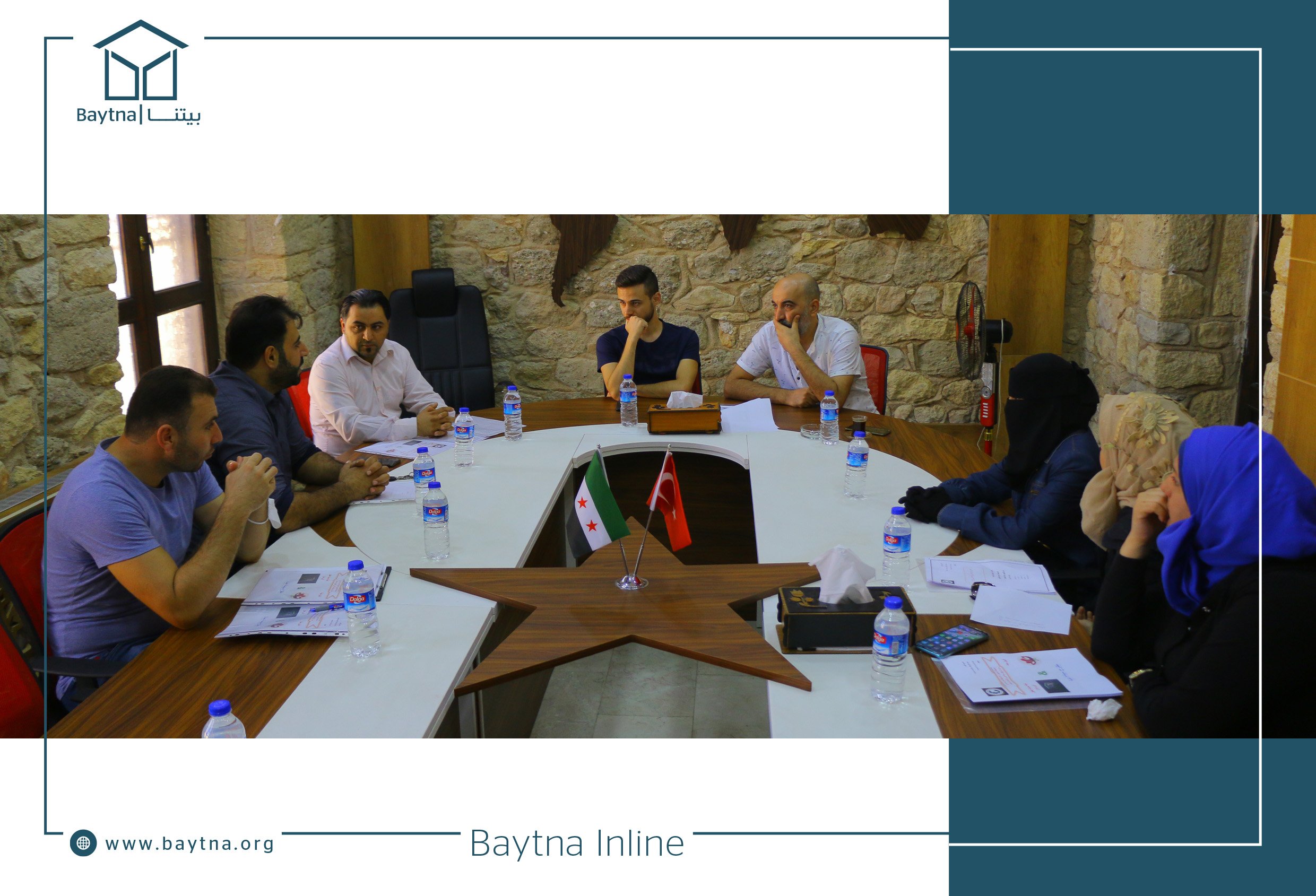
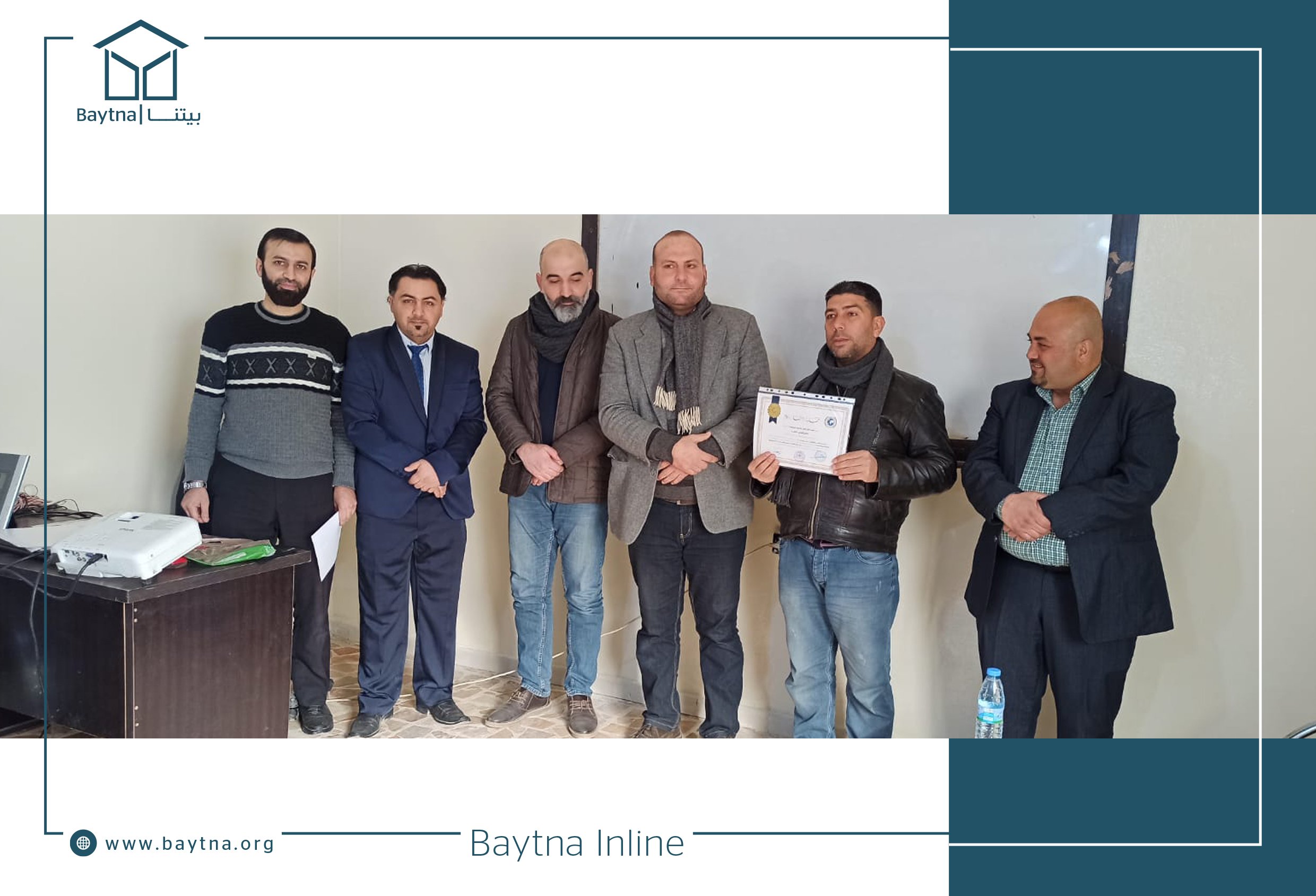
June 9, 2022 - As part of its Inline program engaging local civil society organizations, Baytna has recently initiated a new workstream with its partners inside Syria to continue working on political development and education projects for all society segments.
One of Baytna’s partners in the field is Afaq, an organization established in 2013 as a youth initiative. Focusing on education, protection, empowerment, capacity building, support for community resilience, and peace and governance building, Afaq encourages local communities and stakeholders to form safety committees and youth and women’s initiatives. It has also trained local councils on government and electoral systems, and conducted numerous dialogue sessions between hundreds of activists, dignitaries, and active personalities, to establish a social contract that spreads a culture of coexistence and strengthens the fabric of civil society.
“By conducting political rehabilitation projects, we try to help the Syrian people get rid of the state of frustration, tyranny, and violence they experienced over the past decades, by building a democratic culture that guarantees political empowerment and effective coordination,” explains Feras Kasim, Afaq’s Program Manager.
Through this project, supported by Baytna, Afaq has worked to build a solid political base for a broad segment of activists, calling them "Democracy Makers": “This is done so that they gain political realism and the ability to stand against the psychological warfare practiced by the regime, in addition to forming intellectual immunity in the region."
The project has already achieved several objectives, such as creating a network of 130 activists of the Democracy Makers team, and providing them with an integrated academic political knowledge portfolio through the Afaq Institute for Education and Political Science - including four consecutive diplomas gained through four-month courses.
In addition, Afaq has qualified and trained 130 young men and women, building their competencies to become community interlocutors and enabling them to organize and mobilize the community to advocate for justice, equality and citizenship issues.
The project has also worked on strengthening the resilience of 900 people from the local community (refugees and hosts) and activists in civil society organizations and the community, through dialogue sessions on gender equality, social inclusion, civil rights, governance, and peacebuilding and political education.
At the conclusion of the project, some of the institute's students observed the Tal'aar local council's elections. According to Kasim, "they were given a chance to experience what they studied and learned during their diploma, and they were happy to experience it.”
The students also visited the local council in Azaz, where they presented a paper to the council's administration proposing solutions for some of their current challenges; these included the lack of services provided to teachers. As a solution, the students suggested creating a health card for the teachers to use in hospitals and pharmacies, as well as allocating a pension for teachers to be collected through simple taxes from the city's residents. They also presented a paper on the need for a new ATM and bill-paying machine in the city, to resolve the issue of long queues forming in front of the sole existing one.
For Kasim, all these lessons and experiences serve to fulfill the organization's long-term aspirations: "We are looking forward to strengthening societal resilience. We want to restore Syrians’ confidence in the ability of civil society to mobilize and unify its efforts, until it achieves its goals of democratic change and the protection of human rights."


